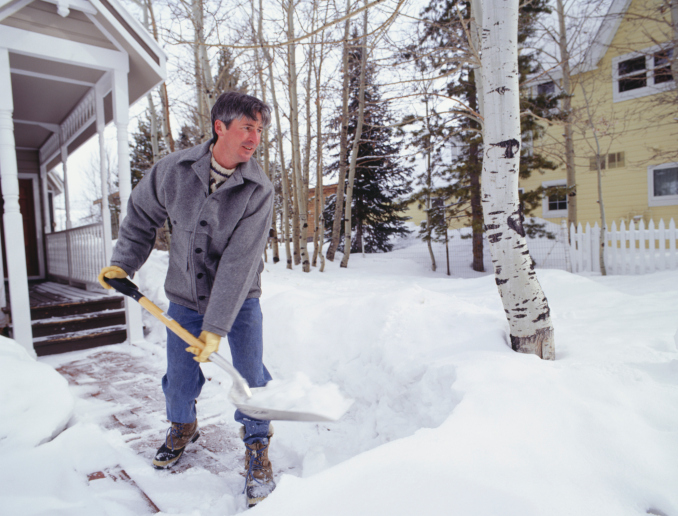Snow can make the outdoors look like a fairy-tale winter wonderland, but for those that have to clear it off their sidewalks and driveways, the magic is short-lived! According to the American Academy of Orthopedic Surgeons, “snow shoveling is considered a rigorous aerobic activity and can place great physical demands on your back and can be a source of a variety of injuries.” Snow shoveling places excessive stress on the spine and is a common cause of low back pain and vertebra disc damage. Before you dig out your snow shovel and get down to work, check out Health Advocate’s tips to help you reduce the potential for injury and make snow shoveling safer:
- Warm up. Before you start shoveling, warm up your muscles for ten minutes with light exercise and stretching.
- Choose the right snow shovel. Use a shovel that has a curved handle–this enables you to keep your back straighter when shoveling. Also, a plastic shovel blade is usually lighter than a metal one, which can help you put less stress on your spine.
- Push the snow instead of lifting it—this puts less stress on your back.
- If you can’t get around lifting the snow, your shoveling technique is very important. Squat with your legs apart, knees bent and back straight. Remember to lift with your legs—don’t bend at the waist. Scoop small amounts of snow into the shovel and walk to where you want to dump it.
- Don’t remove deep snow all at once; do it a little at a time. Just shovel an inch or two at a time—then rest and repeat.
- Never throw snow over your shoulder since this action requires a twisting motion that can add to back stress.
- Light and fluffy snow? Ha! Wet snow can be very heavy. In fact, one full shovel of wet snow can weigh as much as 25 pounds! Take your time and shovel it carefully.
- Pace yourself. Snow shoveling is equivalent to the aerobic activity of weightlifting. Take frequent breaks to gently stretch your back, arms and legs. To prevent dehydration that can affect your muscles, drink plenty of fluids.
If you have a medical condition, don’t exercise regularly, or are inexperienced at shoveling show, talk to your doctor to find out if this activity is right for you. (Don’t currently have a primary care physician? If you’re a Health Advocate member, call us to help you locate an in-network, local doctor!) If you and/or your doctor think you should avoid shoveling snow, your safest bet may be to hire someone to help or ask a friend or family member for their assistance. Your health is the most important thing!



